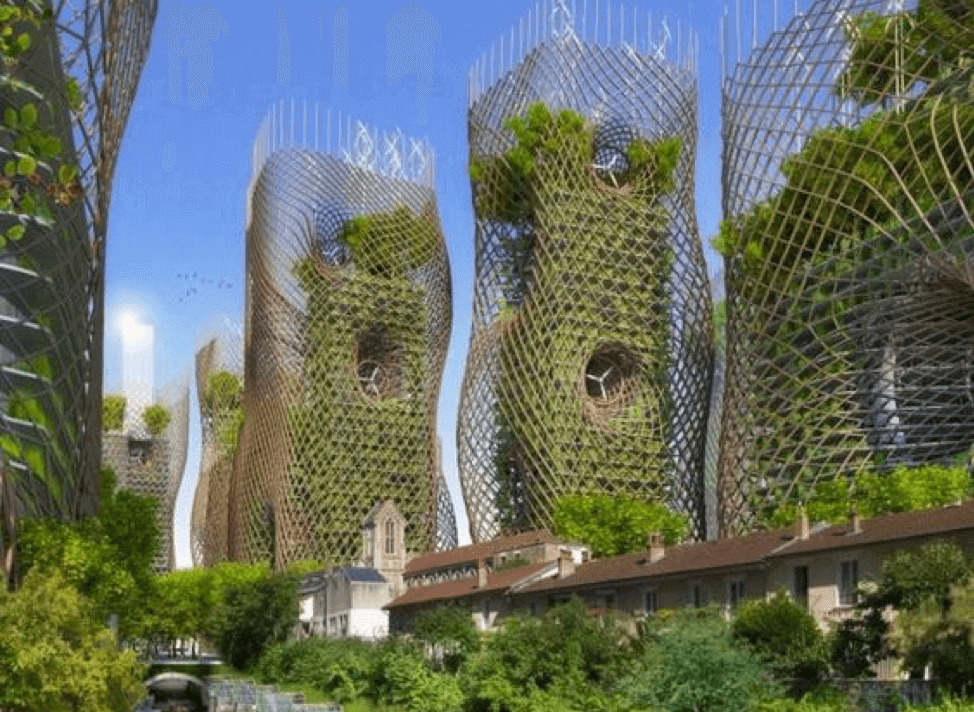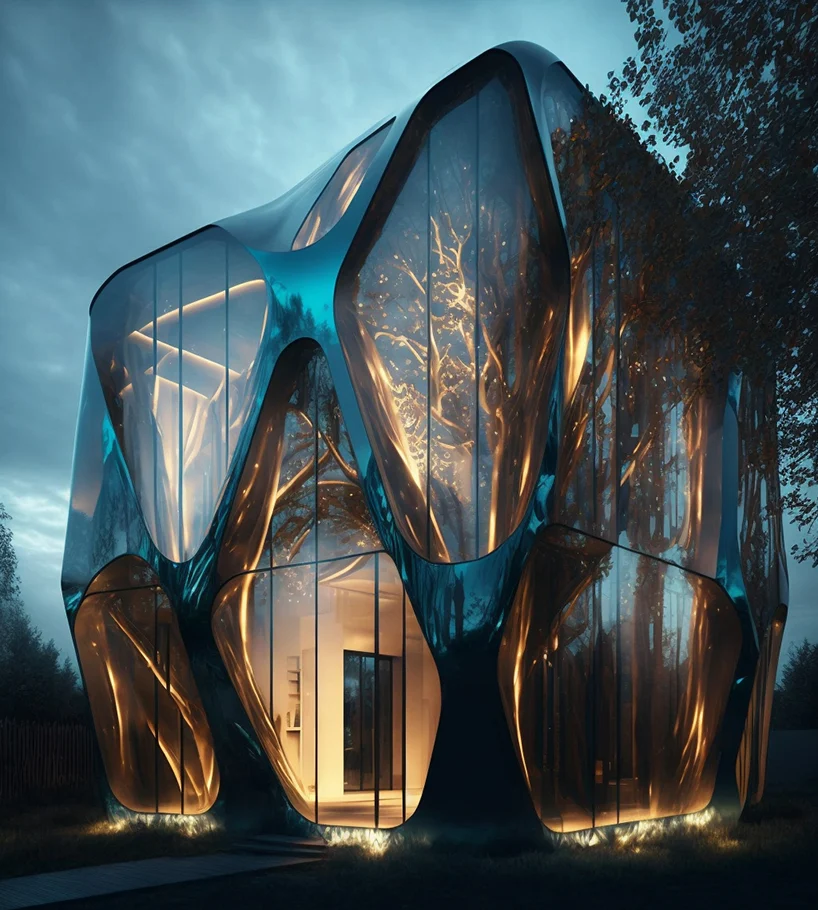The Future Of Architecture - How Technology Is Changing The Game
Architecture has been an essential part of human civilization since the beginning of time. From ancient temples to modern skyscrapers, buildings have played a significant role in shaping the way we live, work, and interact with each other.
As we move towards a more technologically advanced world, the field of architecture is also evolving, and we can expect to see some significant changes in the way buildings are designed and constructed. In this article, we will explore the future of architectureand how technology is changing the game.
The Rise Of Sustainable Architecture
One of the most significant changes that we can expect to see in the field of architecture is a shift towards sustainable design. With concerns about climate change and the depletion of natural resources, architects are increasingly looking for ways to design buildings that are environmentally friendly and sustainable.
From using renewable energy sources to incorporating green spaces into building designs, sustainable architecture is becoming a top priority for architects around the world. You can learn about sustainable architecturein Commercial Architecture Magazine.
Advancements In Building Materials
Another significant development that is likely to shape the future of architecture is advancements in building materials. With new materials being developed all the time, architects will have access to a wider range of options than ever before.
For example, new materials such as graphene, which is incredibly strong and lightweight, could be used to construct buildings that are more durable and energy-efficient. Similarly, 3D printing technology is being used to create complex building components quickly and efficiently, reducing waste and saving time.
The Use Of Artificial Intelligence
Artificial intelligence (AI) is also set to play a significant role in the future of architecture. AI algorithms can be used to analyze data and make predictions about how people will interact with buildings.
This information can then be used to design buildings that are optimized for human comfort and productivity. For example, AI could be used to predict the optimal placement of windows to maximize natural light and minimize heat loss.
Augmented Reality And Virtual Reality
Another exciting development in the field of architecture is the use of augmented reality (AR) and virtual reality(VR) technologies. These technologies allow architects to create virtual 3D models of buildings, allowing clients and stakeholders to explore the design in detail before construction begins.
This not only helps to improve communication and collaboration between architects and clients but also allows for greater precision and accuracy in the design process.
Rise Of Smart Buildings
Finally, we can expect to see a rise in smart buildings in the future of architecture. Smart buildings are designed to be highly automated and integrated, with features such as automated lighting, heating, and cooling systems.
They also incorporate sensors and monitoring systems that can track energy usage, air quality, and other factors that can impact human comfort and productivity. Smart buildings have the potential to significantly improve energy efficiency, reduce costs, and improve the overall quality of life for those who live and work in them.
Challenges And Opportunities
While the future of architecture looks promising, there are also some challenges that the industry will need to overcome. One of the biggest challenges is ensuring that new technologies and materials are safe and meet building codes and regulations. Additionally, there is a need to balance the use of technology with human-centered design principles to create buildings that are not only functional but also enjoyable to live and work in.
However, with challenges come opportunities. As the field of architecture evolves, there will be opportunities for architects to specialize in new areas such as sustainable design, smart building technology, and virtual reality design. Additionally, new technologies and materials will open up opportunities for architects to create innovative and unique designs that were not possible before.
The Role Of Architects
As the field of architecture evolves, the role of architects will also change. While architects will always be responsible for creating functional and aesthetically pleasing buildings, they will also need to become more familiar with new technologies and materials.
This will require ongoing education and training to ensure that architects are equipped with the skills and knowledge they need to create buildings that meet the needs of modern society.
In addition to technical skills, architects will also need to have a deep understanding of human behavior and psychology to create buildings that promote health, happiness, and productivity. As our understanding of the built environment continues to evolve, architects will play a crucial role in creating buildings that support and enhance the lives of those who use them.
The Future Of Architecture And Society
The evolution of architecture is not only about the buildings themselves but also about how they interact with society as a whole. The role of architecture in society is changing, with a greater focus on creating buildings that are not only functional and aesthetically pleasing but also contribute to the health and well-being of their occupants and the surrounding environment.
In the future, we can expect to see an increased emphasis on community-focused design, where buildings are designed to facilitate social interaction and promote a sense of community. This could involve creating more public spaces, incorporating green spaces into building designs, and designing buildings that prioritize natural light and ventilation.
Additionally, the future of architecture will be shaped by changing demographics and societal trends. As the population grows and becomes more diverse, architects will need to design buildings that are inclusive and accessible to people of all ages, abilities, and backgrounds.
This could involve creating more multi-generational housing or designing buildings that are adaptable to different uses over time.
Finally, the future of architecture will be shaped by the need to address global challenges such as climate change and urbanization. Architects will need to find innovative ways to create buildings that are more sustainable, energy-efficient, and adaptable to changing environmental conditions.
This could involve incorporating renewable energy sources, designing buildings that can withstand extreme weather events, and creating buildings that can be easily re-purposed or adapted to new uses.
Role Of Artificial Intelligence In Architecture
Artificial intelligence (AI) is already playing an increasingly important role in architecture, and this trend is expected to continue in the future. AI technologies can assist architects in a number of ways, from creating designs and generating 3D models to optimizing building performance and analyzing environmental data.
One area where AI is already making an impact is in the design phase of a project. With the help of AI tools, architects can quickly generate and evaluate multiple design options, which can help them make more informed decisions and create buildings that are more efficient and functional.
AI algorithms can also analyze data on building performance and user behavior to help architects optimize building design for a range of factors such as energy efficiency, comfort, and user satisfaction.
Another area where AI is expected to have a significant impact is in construction management. By using machine learning algorithms, architects can monitor and analyze construction progress in real-time, identifying potential issues before they become major problems. AI-poweredconstruction management tools can also optimize construction schedules, improve safety, and reduce waste.
People Also Ask
Does Architecture Have A Good Future?
Yes, architecture has a good future. With ongoing innovation in materials, technology, and design, architects are well-positioned to create buildings that are more sustainable, efficient, and better suited to the needs of modern society.
What Will Architecture Be Like In 2050?
It's difficult to predict exactly what architecture will be like in 2050, but we can expect to see buildings that are more sustainable, energy-efficient, and adaptable to changing environmental conditions. We may also see an increased emphasis on community-focused design, where buildings are designed to promote social interaction and a sense of community.
Can AI Replace Architects?
No, AI cannot replace architects. While AI can assist architects in various tasks such as generating designs and analyzing data, it is not a replacement for human creativity, expertise, and decision-making skills. Architects bring a unique perspective and understanding of the human experience that cannot be replicated by AI.
Conclusion
The future of architecture is a fascinating and rapidly evolving field that is being shaped by new technologies, materials, and societal trends. As architects continue to push the boundaries of what is possible, we can expect to see buildings that are more sustainable, efficient, and enjoyable to live and work in.
However, it is also essential that architects remain mindful of the impact their designs have on society as a whole and strive to create buildings that are inclusive, accessible, and contribute to the health and well-being of the communities they serve.
With ongoing innovation and a commitment to human-centered design principles, the future of architecture is sure to be bright.



